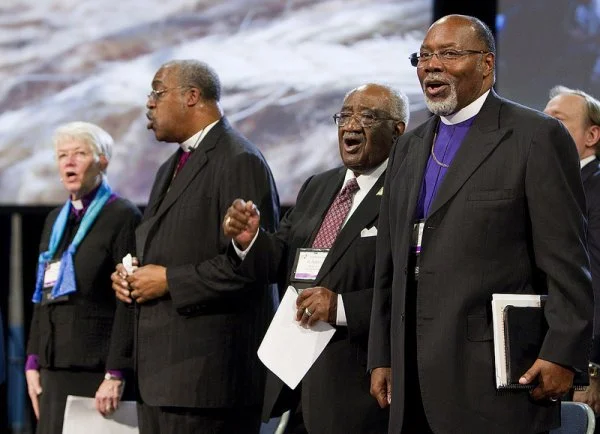- Français
- |
- Booklist
- |
- Week of Prayer
- |
- Links
- Areopagus - a forum for dialogue
- Academic journals
- Acronyms
- Bible tools
- Bibliographies
- Booksellers and publishers
- Churches
- Canadian church headquarters
- Directory of Saskatchewan churches
- Retreat centres
- Saskatchewan church and non-profit agencies
- Ecumenism.net Denominational links
- Anabaptist & Mennonite
- Anglican
- Baptist
- Evangelical
- Independent episcopal
- Lutheran
- Methodist, Wesleyan, and Holiness
- Miscellaneous
- Mormon
- Orthodox (Eastern & Oriental)
- Para-church ministries
- Pentecostal / charismatic
- Presbyterian & Reformed
- Quaker (Society of Friends)
- Roman & Eastern Catholic
- United and uniting
- Documents of Ecumenical Interest
- Ecumenical agencies
- Ecumenical Booklist
- Ecumenical Dialogues
- Glossary
- Human rights
- Inter-religious links
- Justice & peace
- Lectionaries
- Religious news services
- Resource pages
- Search Ecumenism.Net
- |
- Documents
- Ancient & Medieval texts
- Ecumenical Dialogues
- Interreligious
- Anabaptist & Mennonite
- Anglican
- Evangelical
- Lutheran
- Orthodox
- Reformed & Presbyterian
- Roman & Eastern Catholic
- United & Uniting
- Miscellaneous churches
- Canadian Council of Churches (CCC)
- Conference of European Churches (CEC)
- Interchurch Families International Network (IFIN)
- National Council of Churches in Australia (NCCA)
- Lausanne Committee for World Evangelism (LCWE)
- World Council of Churches (WCC)
- Other ecumenical documents
Church traditions
Documents from ecumenical agencies
- |
- Dialogues
- Adventist-Reformed
- African Instituted Churches-Reformed
- Anglican-Lutheran
- Anglican-Orthodox
- Anglican-Reformed
- Anglican-Roman Catholic
- Anglican-United/Uniting
- Baptist-Reformed
- Disciples of Christ-Reformed
- Disciples of Christ-Roman Catholic
- Evangelical-Roman Catholic
- Lutheran-Mennonite
- Lutheran-Mennonite-Roman Catholic
- Lutheran-Reformed
- Lutheran-Roman Catholic
- Mennonite-Reformed
- Mennonite-Roman Catholic
- Methodist-Reformed
- Methodist-Roman Catholic
- Oriental Orthodox-Reformed
- Orthodox-Reformed
- Orthodox-Roman Catholic
- Pentecostal-Reformed
- Prague Consultations
- REC-WARC Consultations
- Roman Catholic-Lutheran-Reformed
- Roman Catholic-Reformed
- Roman Catholic-United Church of Canada
- |
- Quick links
- Canadian Centre for Ecumenism
- Canadian Council of Churches
- Ecumenical Shared Ministries
- Ecumenism in Canada
- Interchurch Families International Network
- International Anglican-Roman Catholic Commission for Unity and Mission
- Kairos: Canadian Ecumenical Justice Initiatives
- North American Academy of Ecumenists
- Prairie Centre for Ecumenism
- Réseau œcuménique justice et paix
- Week of Prayer for Christian Unity
- Women's Interchurch Council of Canada
- World Council of Churches
- |
- Archives
- |
- About us
Historic agreement bridges racial divide: U.S. Methodists
— May 1, 20121 mai 2012After several hundred years of separation, members of six Pan-Methodist denominations have committed to ministry together.
The United Methodist Church (UMC) is the last of the denominations to adopt the full communion agreement, which was celebrated May 1 during the 2012 UMC General Conference.
The affirmation establishes a new relationship among the African Methodist Episcopal, African Methodist Episcopal Zion, African Union Methodist Protestant, Christian Methodist Episcopal, Union American Methodist Episcopal and United Methodist denominations.
Bishop Sharon Zimmerman Rader, ecumenical officer for the United Methodist Council of Bishops, noted that acknowledging past difficulties is part of the process. “We believe this is a significant moment in all of our histories,” she said during a news conference preceding the celebration.
For the CME church, an outgrowth of the Methodist Episcopal Church South, this moment is one of lasting significance, said Bishop Thomas Hoyt Jr., who has a long history of involvement with United Methodists through the Pan-Methodist Commission and ecumenical organizations.
“To be in full communion is to be related to one of the great churches of American society and the world,” he declared.
“I believe the best for Methodism is yet before us,” added AME Bishop John White. “This full communion gives us an opportunity to make our witness around the world.”
The Rev. W. Robert Johnson III, top executive of the AMEZ church, which split from John Street United Methodist Church in 1796 “for reasons of injustice,” welcomed the chance to heal the relationship. “It is a long way from John Street Methodist Church in New York City to Tampa, Fla.,” he said.
There is a temptation to look at the new relationship of the United Methodist Church and smaller black Methodist denominations as a situation of the big fish swallowing the smaller fish, said United Methodist Bishop Alfred Norris, but that is not so. “In this case,” he explained, “the big fish and the little fish will be swimming together.”
Norris, who has led the Pan-Methodist Commission for the past two years, pointed out that his esteemed colleagues – Hoyt, White and Johnson – “are as much a part of the Methodist family as I am.”
The denominations, which already cooperate on issues such as children and poverty, will now have an opportunity to pursue a broader mission agenda together. “I think this will breathe new life into the commission itself,” added the Rev. Stephen Sidorak, Jr., top executive of the United Methodist Commission on Christian Unity and Interreligious Concerns.
But the “real work” happens at the local church and community level, the denominational leaders agreed.
Hoyt suggested the need for a “sacrament of the coffee cup” to build individual friendships and commit to finding ways to break down barriers and promote justice together.
Issues of race and class are not just sociological but theological, he said, because dealing with such issues “teaches us to get along together.

 Permanent link: ecumenism.net/?p=2168
Permanent link: ecumenism.net/?p=2168
Categories: News • In this article: Methodist

 Lien permanente : ecumenism.net/?p=2168
Lien permanente : ecumenism.net/?p=2168
Catégorie : News • Dans cet article : Methodist



